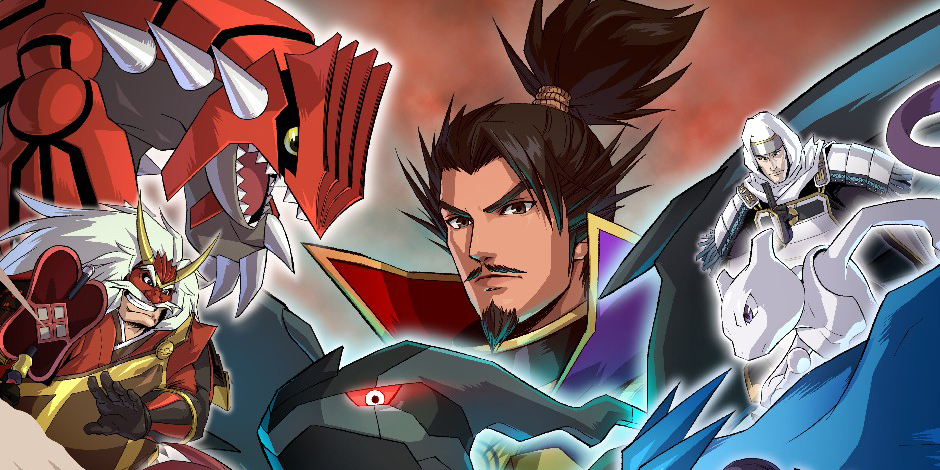GamesRadar+ Verdict
Pros
- +
Addictive tactical gameplay
- +
Complex strategy outside of battles
- +
Despite cute characters
- +
embraces deeper aspects of genre
Cons
- -
Hours spent explaining all its eccentricities
- -
Too obligated to Nobunaga series standards and practices
- -
Sadly it couldnt be a 3DS game
Why you can trust GamesRadar+
Much like the Pokémon themselves, Pokémon Conquest is a strange beast. After more than a decade of spin-offs in nearly every other genre, the world-conquering franchise has at last spread to the strategy genre, the more complicated brother of the RPG. Since Pokémon was born as an RPG, the genre fits it quite well, but things get complicated by crossing over Pokémon with a complex series largely forgotten by the English-speaking world. Though the Feudal Japan aesthetic enhances the already addictive turn-based battles, it sporadically overcomplicates a rewarding-but-dense game.
Pokémon Conquest is set in the world of Ransei, a Pokémon-rich land relatively similar to Japan in the 1500s. Unlike in the main Poké games, select citizens of Ransei connect with Pokémon and work beside them instead of catching them in balls. Many regions in Ransei are battling for dominance and each is kingdom is based on a specific Pokémon type. All 17 types (fire, psychic, dragon, etc.) are represented and are ultimately out to defend themselves against would-be conqueror Nobunaga. It’s up to your newly appointed leader and their Eevee to defend the region from his burning desire to awaken a legendary Pokémon.
Based on the cult tactical series Nobunaga’s Ambition, the gameplay works fairly similar to other classic strategy RPGs like Final Fantasy Tactics and Advance Wars, so we love Conquest for the same reasons. Every combatant is represented on-screen by a single Pokémon on a team of six, battling it out in turn-based combat with another pack of Pokémon on map. The measured pace of the combat works splendidly on a handheld and Conquest adds some welcomed haste to its battles. Each fight has a limited number of turns, rewarding bonuses for quickly dispatching enemies, shaking up the repetitive nature of the action.
Much like the core Pokémon series, Conquest seems simpler on the outside than it truly is, and that begins with the battles. Conquest borrows the ingenious rock-paper-scissors approach to type difference from the main series and makes great use of it here. Invading the Dragon type kingdom? Better bring some Ice Pokémon with you. Much like in the main games, the hidden depth to the combat kept us engaged in battle after battle. Pokémon experts will catch on to the type differences immediately, but everyone else will learn gradually through the game’s continual flow of info.
We came to appreciate that complexity even if Conquest has so much to explain to players that it was hours before we finally discovered the “real” game. Continually, Conquest would reveal new aspects, from big changes like a Pokémon’s special, slowly charging skill moves to little touches like taking time to feed your monstrous friends ponigiri, a cuter version of a traditional Japanese snack. Experienced strategy RPG players might believe that they’ll just jump in, but even they need a few tutorials in Conquest’s unique approach to the genre. Ultimately we embraced these little touches that made the already enjoyable gameplay more unique, but not everyone will be so patient.
Patience is also key to preparing for encounters. Each member of your team is limited to one action per “month” (aka a turn outside of battle), meaning you have to plan out character placement, item purchasing, team building and ultimately your battle’s strategy “months” in advance. This kind of byzantine research is inherited from the Nobunaga series and even after we grasped the techniques, it occasionally felt like we were checking off boxes on a spreadsheet instead of playing a game. The prep made the battles all the sweeter when they finally happened, but a couple of those steps could have been cut without missing much.
However, all the extra touches and rules gave much more to Pokémon Conquest than it took away. If you were concerned that a strategy game starring Pokémon would be simplified for a wider audience, let go of your worries. PC retains the addictive qualities of battling and team-building we love in tactics titles while fully embracing everything strange about niche Japanese titles like this one. By coming at it from a different angle, Conquest finds its own special spot in the world of SRPGs.
More info
| Genre | Strategy |
| Description | Pokemon travel to ancient Japan to meet up with warlord on the battlefield. A great tactical RPG with a pocket monsters twist. |
| Franchise name | Pokemon |
| UK franchise name | Pokemon |
| Platform | "DS" |
| US censor rating | "Everyone" |
| UK censor rating | "" |
| Alternative names | "Pokemon + Nobunaga's Ambition" |
| Release date | 1 January 1970 (US), 1 January 1970 (UK) |
Henry Gilbert is a former GamesRadar+ Editor, having spent seven years at the site helping to navigate our readers through the PS3 and Xbox 360 generation. Henry is now following another passion of his besides video games, working as the producer and podcast cohost of the popular Talking Simpsons and What a Cartoon podcasts.




